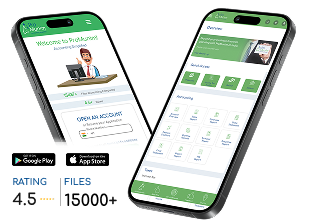Introduction
Introducing our Business Financial Planning solution, a comprehensive service designed to empower businesses to navigate financial complexities, optimize resources, and achieve strategic objectives with confidence. From start-ups to established enterprises, our platform provides the tools and insights needed to drive sustainable growth and long- term success.
With ProMunim, you gain access to a team of seasoned experts who combine years of industry experience with a deep understanding of the ever-evolving financial landscape in India. From strategic planning to operational optimization, from investment strategies to risk management, we cover all aspects of financial planning with precision and care. Whether you're a Startup looking to chart a course for growth or an established enterprise seeking to maximize profitability, ProMunim is here to guide you every step of the way. Trust us to navigate the complexities of financial planning, so you can focus on what you do best – building and growing your business. With ProMunim, the future of your business is brighter than ever."
Key Features:
- Strategic Financial Planning:Strategic financial planning involves setting long-term financial goals and developing strategies to achieve them. It includes analysing market trends, assessing competitive landscapes, and identifying opportunities for growth and expansion.
- Budgeting and Forecasting:Budgeting and forecasting involve creating financial plans that outline expected revenues,expenses,and cash flows over a specific period. Businesses use budgets and forecasts to set targets, allocate resources, monitor performance,and make adjustments to achieve financial objectives. Effective budgeting and forecasting help businesses manage costs, optimize revenue streams.
- Cash Flow Management: Cash flow management focuses on ensuring that a business has enough cash on hand to meet its short-term obligations while maximizing cash inflows and minimizing cash outflows.Effective cash flow management is essential for maintaining financial health and supporting day- to-day operations.
- Capital Expenditure Planning:Capital expenditure planning involves budgeting for investments in long-term assets and projects that are essential for business development. It includes evaluating investment opportunities, prioritizing capital expenditures, and financing capital projects through internal funds or external sources such as loans or equity financing.
- Debt Management:Debt management focuses on managing and optimizing the use of debt to finance business operations and investments.
- Risk Management and Insurance Planning:Risk management and insurance planning involve identifying, assessing, and mitigating financial risks that could impact business operations and profitability. It includes purchasing insurance coverage to protect against risks such as property damage, liability claims, business interruption, and cyber security breaches.
- Succession Planning:Succession planning involves creating a strategy for transferring ownership and leadership of the business to the next generation of owners or managers. Succession planning helps businesses preserve value, protect stakeholders' interests, and facilitate smooth leadership transitions.
How It Works:
- Initial Assessment:Begin by conducting an initial assessment of your business financial goals,challenges,and priorities. This may involve a consultation with ProMunim financial experts to understand your specific needs and objectives.
- Data Collection:Gather relevant financial data, including income statements, balance sheets,cash flow statements,and any other pertinent information about your business's financial performance and position.
- Financial Analysis:Utilize ProMunim's advanced financial analysis tools to analyse your financial data and identify key trends,strengths,weaknesses,opportunities,and threats.
- Goal Setting:Work with ProMunim's experts to establish clear and achievable financial goals for your business. These goals may include increasing revenue,reducing expenses,improving profitability,managing debt,or expanding operations.
- Strategy Development:Based on the financial analysis and goal setting,develop tailored financial strategies and action plans to achieve your objectives.
- Budgeting and Forecasting:Create detailed budgets and financial forecasts using ProMunim's budgeting.
- Implementation:Implement the financial strategies and action plans developed in collaboration with ProMunim's experts. This may involve making operational changes, reallocating resources, optimizing processes, or pursuing new opportunities to align with your financial goals.
- Monitoring and Review:Continuously monitor and review your business's financial performance against the established goals and benchmarks. ProMunim's monitoring tools provide real-time insights into key financial metrics.
- Performance Analysis:Conduct regular performance analysis and evaluation to assess the effectiveness of your financial strategies and initiatives. Identify areas of success, areas for improvement, and any emerging challenges or opportunities.
- Adaptation and Optimization:Based on performance analysis and feedback, adapt and optimize your financial plans and strategies as necessary. ProMunim's flexible approach allows for on-going refinement and adjustment to ensure alignment with your evolving business needs and market conditions.
- Continuous Support:Benefit from ProMunim's on-going support and expertise throughout the financial planning process. Whether you have questions, need guidance, or require additional assistance, ProMunim's team is always available to help you navigate your financial journey.
What We Are Providing?
- Strategic Financial Planning:Strategic financial planning involves aligning financial goals with overall business objectives and long-term strategic vision. It includes setting targets for revenue growth, profitability, market expansion, and resource allocation to support organizational priorities.
- Operational Financial Planning:Operational financial planning focuses on day-to-day financial activities and decisions to ensure efficient use of resources and optimal operational performance. It includes budgeting, cash flow management, cost control, and working capital management.
- Capital Expenditure Planning:Capital expenditure planning involves forecasting and managing investments in long-term assets, such as property, equipment, and technology. It includes evaluating investment opportunities, estimating costs, and determining financing options to support capital projects.
- Risk Management Planning:Risk management planning involves identifying, assessing, and mitigating financial risks that could impact the business's financial health and performance. It includes strategies for managing market risk, credit risk, liquidity risk, and operational risk.
- Tax Planning:Tax planning involves optimizing the business's tax position to minimize tax liabilities while complying with tax laws and regulations. It includes strategies for maximizing tax deductions, credits, and incentives, as well as managing tax implications of business transactions.
- Financial Forecasting:Financial forecasting involves predicting future financial performance based on historical data, market trends, and business projections. It includes forecasting revenue, expenses, cash flow, and profitability to support decision-making and planning.
- Debt Management Planning:Debt management planning involves managing the business's debt obligations effectively to maintain financial stability and flexibility. It includes strategies for debt repayment, refinancing, and restructuring to minimize interest costs and mitigate default risks.
- Investment Planning:Investment planning involves allocating financial resources to different investment opportunities to generate returns and achieve financial objectives. It includes evaluating investment options, diversifying investment portfolios, and managing investment risk.
- Succession Planning:Succession planning involves preparing for the transfer of ownership and management of the business to the next generation of leaders. It includes developing strategies for leadership development, ownership transition, and estate planning to ensure continuity and sustainability.
- Contingency Planning:Contingency planning involves preparing for unexpected events or crises that could impact the business's financial stability and operations. It includes developing risk mitigation strategies, establishing emergency funds, and creating business continuity plans to minimize disruptions and losses.
Benefits
- Strategic Alignment:Align financial planning activities with business objectives and strategic priorities to drive growth and profitability.
- Risk Mitigation: Identify and mitigate financial risks through scenario analysis, contingency planning, and proactive risk management strategies.
- Improved Decision-Making: Make informed decisions based on accurate financial data, insights, and forecasts.
- Financial Transparency:Enhance transparency and accountability by providing stakeholders with visibility into financial performance and planning processes.
- Resource Optimization:Optimize resource allocation, including capital, human capital, and operational resources, to maximize efficiency and effectiveness.
Frequently Asked Questions
Business financial planning involves developing strategies to manage finances, allocate resources, and achieve financial goals. It's crucial for businesses to plan their finances strategically to ensure long-term sustainability, growth, and profitability.
We consider various factors, including your business's financial objectives, industry dynamics, market conditions, growth plans, risk tolerance, regulatory environment, and cash flow requirements, to develop a customized financial plan tailored to your specific needs.
Yes, we provide investment planning services to help you identify investment opportunities, evaluate investment options, manage investment portfolios, and optimize returns while minimizing risks.
To engage our Emergency Accounting Services, simply register emergency accounting service now, and schedule an initial consultation. Our experts will assess your situation, develop a customized action plan, and provide the necessary support and assistance to address your urgent financial challenges.
The process typically involves an initial consultation to assess your needs, followed by the development of a customized action plan. Our team will then implement the necessary strategies and provide on-going support until your financial emergency is resolved.
Yes, our Emergency Accounting Services can help identify underlying issues and vulnerabilities that may lead to future financial emergencies. By implementing proactive measures and risk management strategies, we can help mitigate risks and prevent future crises.
Contact ProMunim Today to Ensure Financial Health and Compliance - Don't Wait!
Register Now











